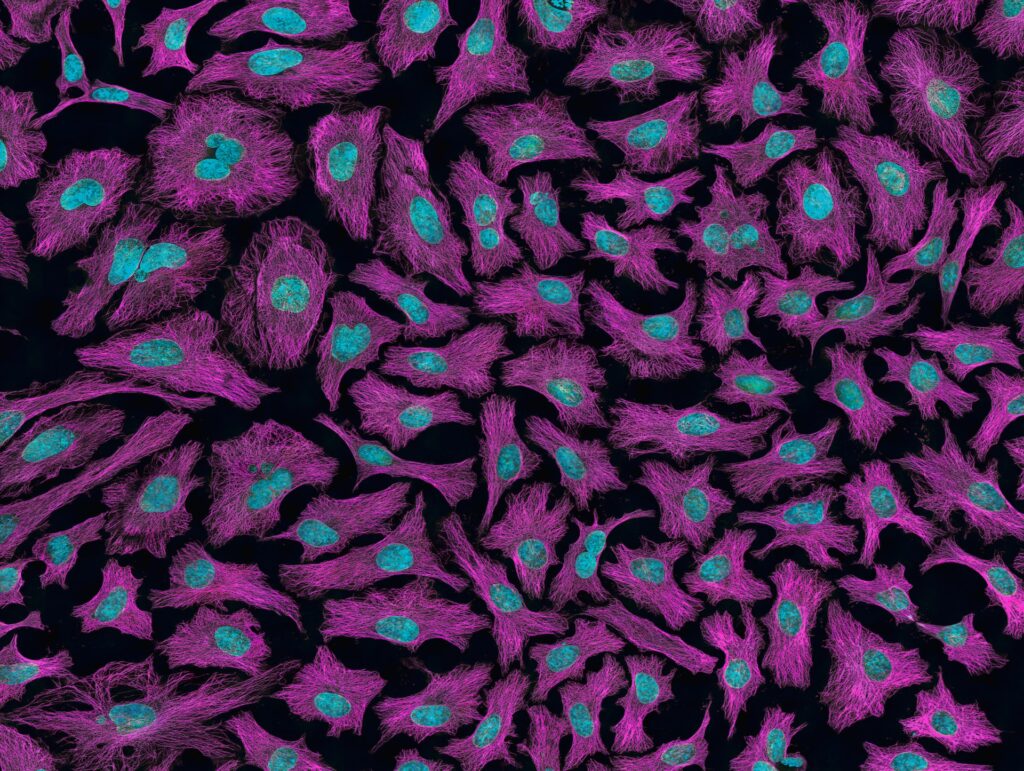Cancer is a complex and multifactorial disease with various origins, and it has been the subject of extensive scientific research. While there is no single cause of cancer, it is generally understood to result from genetic mutations and environmental factors.
- Genetic Mutations
Most cancers are driven by genetic mutations that accumulate over time. Mutations can occur in critical genes that regulate cell growth, division, and repair. These genetic changes can lead to uncontrolled cell growth and the formation of tumours.
- Environmental Factors
Environmental factors play a significant role in cancer development. Exposure to carcinogens, such as tobacco smoke, ultraviolet (UV) radiation, radiation from ionizing sources, and certain chemicals, can increase the risk of cancer.
- Lifestyle and Behavioral Factors
Certain lifestyle choices and behaviors are associated with an increased risk of cancer. These include smoking, excessive alcohol consumption, a diet high in processed foods, lack of physical activity, and obesity.
- Infections
Some cancers are caused by infections with viruses, bacteria, or parasites. For example, human papillomavirus (HPV) is linked to cervical cancer, and Helicobacter pylori is associated with stomach cancer.
5. Inherited Genetic Mutations
In some cases, cancer can be attributed to inherited genetic mutations, such as BRCA1 and BRCA2 mutations, which increase the risk of breast and ovarian cancers.
Types of cancers affect humans
Cancer is a group of diseases characterized by the uncontrolled growth and spread of abnormal cells in the body. There are numerous types of cancers that can affect humans, and they can occur in virtually any organ or tissue. Here is a list of some common types of cancers:
Breast Cancer:Occurs in the breast tissue and is the most common cancer among women worldwide.
Lung Cancer:Primarily caused by tobacco smoking and affects the lungs.
Colorectal Cancer:Affects the colon or rectum and is often referred to as colon or rectal cancer.
Prostate Cancer: Develops in the prostate gland, a part of the male reproductive system.
Skin Cancer:Includes melanoma (a serious form) and non-melanoma skin cancers like basal cell carcinoma and squamous cell carcinoma.
Bladder Cancer:Affects the bladder, a hollow organ in the lower abdomen.
Leukemia: A type of blood cancer that affects the bone marrow and blood-forming cells.
Lymphoma:Affects the lymphatic system, including Hodgkin lymphoma and non-Hodgkin lymphoma.
Ovarian Cancer:Occurs in the ovaries, part of the female reproductive system.
Cervical Cancer: Affects the cervix, the lower part of the uterus.
Pancreatic Cancer: Develops in the pancreas, an organ in the abdomen.
Liver Cancer: Primarily caused by chronic liver diseases like hepatitis and cirrhosis.
Kidney (Renal) Cancer: Affects the kidneys, which filter blood and produce urine.
Thyroid Cancer: Develops in the thyroid gland in the neck.
Esophageal Cancer: Affects the esophagus, the tube connecting the throat to the stomach.
Stomach (Gastric) Cancer: Occurs in the stomach lining.
Brain and Central Nervous System (CNS) Cancers: Affect the brain and spinal cord.
Bone Cancer: Can occur in the bones and is classified as primary (originating in the bone) or secondary (spread from other sites).
Uterine (Endometrial) Cancer: Develops in the lining of the uterus.
Oral and Throat Cancers: Include cancers of the mouth, tongue, throat, and tonsils.
Gastrointestinal (GI) Cancers: Encompass cancers of the gastrointestinal tract, including the esophagus, stomach, colon, and rectum.
Mesothelioma: Primarily caused by exposure to asbestos and affects the lining of the lungs, abdomen, or heart.
Multiple Myeloma: A type of blood cancer that affects plasma cells in the bone marrow.
Soft Tissue Sarcomas: Affect the soft tissues, including muscles, fat, nerves, and blood vessels.
Eye Cancer: Includes ocular melanoma and retinoblastoma (a childhood cancer).
Testicular Cancer: Develops in the testicles, part of the male reproductive system.
Gynecological Cancers: Encompass a group of cancers affecting the female reproductive organs, including ovarian, cervical, uterine, vaginal, and vulvar cancers.
These are just some examples of the many types of cancers that can affect humans. Each type of cancer may have its unique risk factors, symptoms, diagnostic methods, and treatment approaches. Early detection and timely treatment are critical factors in improving outcomes for individuals diagnosed with cancer.
